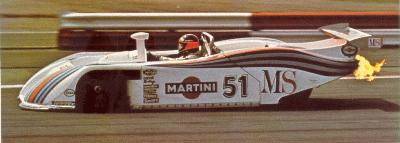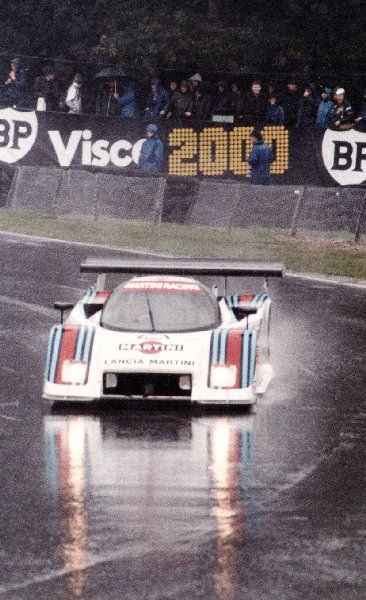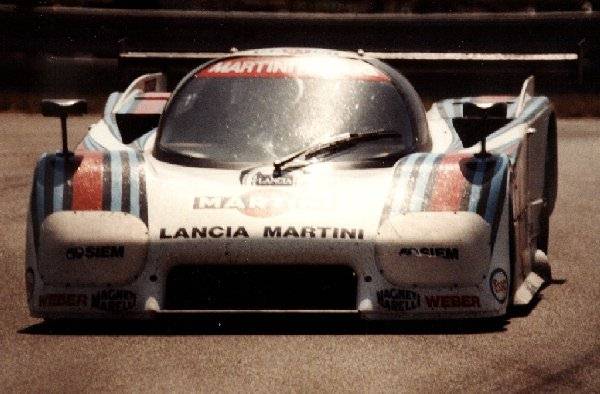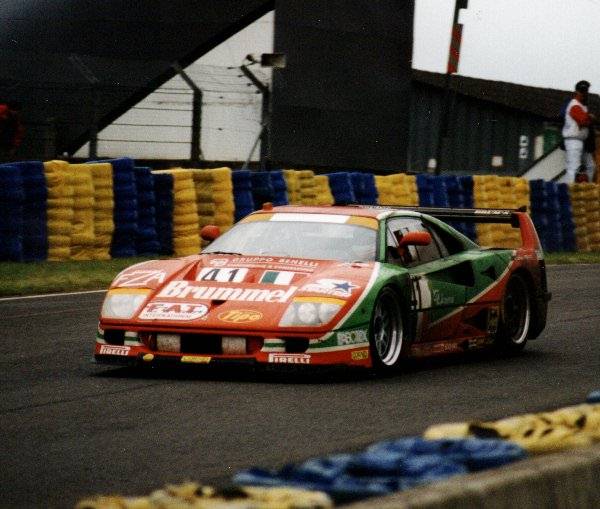
Ferrari 512BB at Le Mans 1983
In the 60s and 70s, Ferrari were the team to beat in sportscar racing. Their cars were fast, reliable and beautiful and Ford's GT40 programme was specifically designed to beat them. The film, Le Mans, is a reflection of their position in the Sportscar racing world in 1970.
However, through the 70s and 80s the Italians, now owned by the FIAT group, kept a very low Sportscar profile, being represented only by privateer entries with modified GT cars. Ferrari, as they continue to do so, concentrated on Formula 1.

Ferrari 512BB at Le Mans 1983
In the late 70s, Lancia took up the sportscar mantle for the FIAT group. Having won the World Endurance Championship in the late days of Group 5 (by the clever use of cars in both up-to and over 2 litre classes), Lancia then ran a Group 6 car for a while. This car was competitive against the Porsche 956 and was narrowly pipped to an overall victory at the Brands Hatch race in 1982, despite holding the Porsche off in the second part of the interrupted race. This was probably the best sportscar race I've ever seen.


A roofed version of this car ran in private hands as the Lancia LC1, but Lancia's real Group C challenger was the beautiful LC2.
Powered by a turbocharged version of the Ferrari 308 engine, this car was probably always quicker than a Porsche, but proved fragile. It did take victories and performed well in Le Mans 24 hour races on occasions, but, despite the best efforts of drivers like Riccardo Patrese and Andrea De Cesaris, lack of 100% reliability often prevented outright victory and the project was quietly wound up in 1987, when it became clear that the LC2 could no longer compete with the Jaguars and Mercedes.


LC2 basks in the Le Mans sunshine, 1984

Lancia LC2 at Brands Hatch in 1985
With the arrival of the GT series, Ferrari were ready and waiting with a supercar. Despite being launched as a road car, and ridiculed by some as a wannabe race car, the Ferrari F40 has covered itself with glory as the only car, prior the arrival of the latest generation GTs like the 911GT1 and Mercedes, to be able to take on the McLaren F1 and, on occasions, beat it (Of course, there are stories of a GT2 car from Westbury achieving this too, but more of that elsewhere...). This is even more remarkable, when you consider that the F40 ceased production in 1989.


The end of the F40s career. Le Mans 1996
In 2004, Maserati, now owned by Ferrari, announced that they were returning to sportscar racing with a GT car.
This car was based upon the Enzo hypercar, a car with a detuned F1 engine and, when launched, caused mass dismay as it appeared to be as much a true GT as the Porsche GT1 and Mercedes CLK-GTR, which had destroyed GT racing in the late 1990s.

With massive overhangs, no rear windows and developing huge downforce, the promise of true GT racing (with cars like the Lamborghini Murcielago and Aston Martin DBR9 waiting in the wings) seems to have been dealt a huge blow and it has already (after two races) proved worryingly competitive, despite attempts to reduce its competitiveness...
